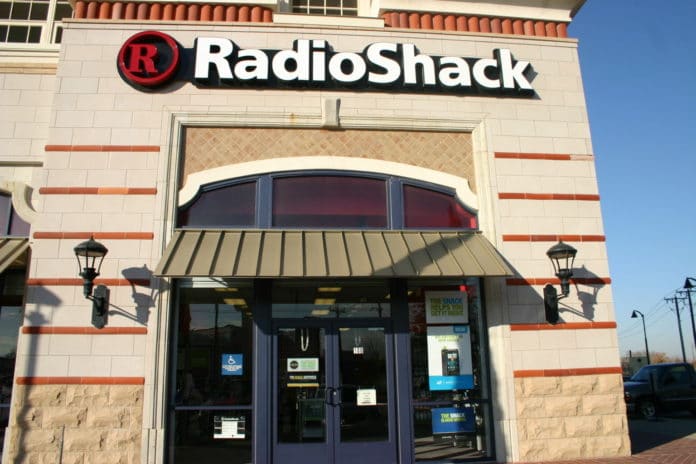WILMINGTON, Del. (AP) — A Delaware bankruptcy judge on Wednesday refused to reopen a disputed auction for the sale of RadioShack’s intellectual property, including trademarks and data on some 67 million customers of the electronics retailer.
Following a hearing Wednesday, Judge Brendan Shannon said he would not second-guess a decision to change an open bidding process at last week’s auction to a call for final sealed bids from three potential buyers.
The auction ended with General Wireless, an affiliate of hedge fund Standard General, declared the winner with a bid of $26.2 million.
While certain issues remain to be resolved, Shannon said he was prepared to approve the sale of the RadioShack brand and other intellectual property to General Wireless, which also is acquiring more than 1,740 RadioShack stores.
Another bidder, Wonderland Investment Group, argued that the intellectual property auction was improperly changed when potential buyers were told, after several rounds of open bidding in minimum increments of $100,000, to submit final sealed bids. The switch was made when the bidding, which opened at $12 million, stood at $18 million, with concerns that the open bidding momentum was flagging.
“I think $8.2 million speaks for itself,” David Peress, a consultant assisting in the auction process, said about the final result.
But Wonderland, which offered $30 million after the bidding was closed, asked Shannon to reopen the bidding. It was supported in its request by RadioShack’s official committee of unsecured creditors and by Salus Capital Partners, a senior lender that held priority claims on the intellectual property.
But Shannon said there were no proper grounds for him to reopen the bidding, even if it would result in millions more for RadioShack creditors.
“The switch to sealed bids, I believe, was permissible,” Shannon said, citing language in the bid procedures order that allowed RadioShack, after consultation with interested parties, to adopt appropriate auction rules.
The judge also noted concerns that reopening the bidding could have upset a settlement agreement reached with several state attorneys general to protect the privacy of RadioShack customers.
As the result of mediation, RadioShack agreed to sell only a few categories of its customer data, including names, mailing addresses, email addresses active within the past two years, and limited transaction data, such as purchase price, product information and store location.
Hal Morris, an assistant attorney general in Texas, noted that RadioShack and General Wireless agreed that there would be no transfer of customer credit card information, Social Security numbers, birth dates or phone numbers.
“We think that offers significant protection for consumers,” said Morris, who was joined by the attorneys general of more than 35 other states in efforts to protect the privacy of RadioShack customers.
“I think an appropriate balance was struck here,” Morris added, noting that General Wireless has a legitimate need for customer information in continuing to operate RadioShack as a going concern.
RadioShack, which has not turned a profit since 2011, sought bankruptcy protection in February after years of financial struggles.
The company, founded in Boston in 1921, began as a distributor of mail-order ship radios, ham radios and parts. In the postwar era, it sold high-fidelity audio components, calculators, early personal computer systems and mobile phones, and the computer industry’s first laptop.
RadioShack’s proposed reorganization plan calls for Sprint, the No. 3 U.S. wireless carrier, to operate dedicated “store within a store” shops in most of the locations acquired by acquired by General Wireless.






